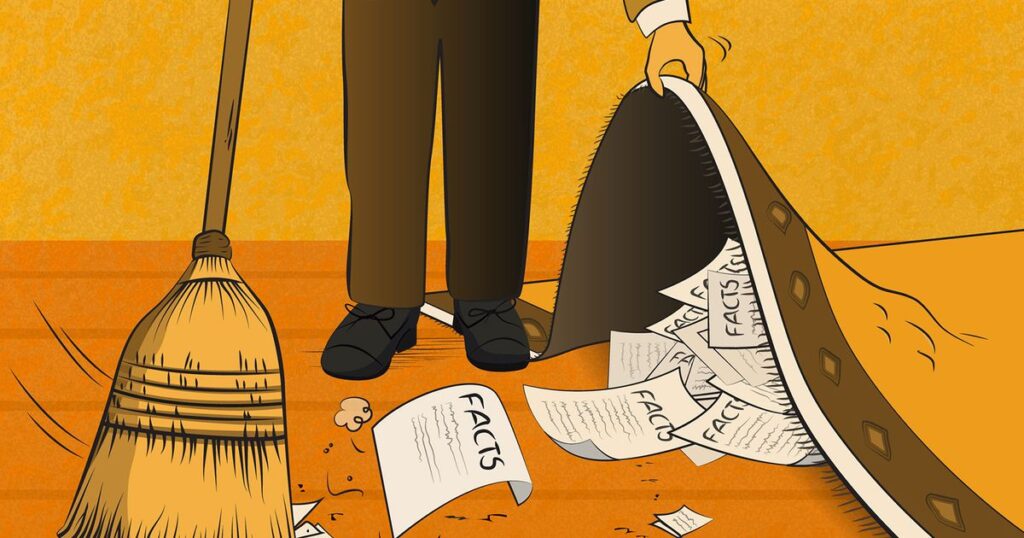Washington’s state lawmakers have pushed the boundaries of the Public Information Act for years, however the newest effort by the House of Representatives is a power grab straight out of the palms of the folks they’re purported to serve.
The Home public data officer despatched an inner e mail in late July to the chamber’s legislators outlining a restart of a 30-day e mail auto-deletion system and a information on methods to do away with “transitory” emails even sooner.
As background, a 2019 Washington State Supreme Court ruling discovered particular person lawmakers are topic to the PRA however left a query mark about how the chambers themselves should behave. Led by Home Speaker Laurie Jinkins, D-Tacoma, the Home has poked at that weak spot ever since.
This isn’t only a Home problem. The Legislature’s tendency towards secrecy has steadily grown, regardless of lawsuits, the 2019 court docket ruling and a large public outcry. After that court docket ruling, lawmakers determined they’d a proper to cover data from the general public underneath the guise of “legislative privilege,” extra appropriately known as “secrecy privilege.”
The Washington Coalition for Open Authorities is combating that declare in court docket, and arguments earlier than a state Courtroom of Appeals are anticipated this fall.
Eight lawmakers (of 147), together with now-deceased former Democratic Home Speaker Frank Chopp, pledged at WashCOG’s request that they won’t use the secrecy privilege. Per week earlier than he died in March, Chopp spoke at our annual Sunshine Breakfast, the place we thanked him for standing up for transparency. He left us with these phrases:
“This problem could be very easy. You must battle again and win on this problem as a result of the persons are with you.”
As we proceed to battle, this newest Home motion would make it simpler and extra computerized to destroy emails — no privilege required. Lawmakers can merely deem them “transitory” and dump them, hiding what they need. That’s extra energy than the folks of Washington ever meant.
Left sitting at nighttime, all voters have are unanswered questions. How will we all know which candidate is working for us or if an incumbent must be changed? We received’t.
In the meantime, WashCOG is dismayed on the lack of shock from lawmakers who perceive that these energy grabs usually are not within the folks’s finest curiosity. Transparency must be a nonpartisan problem, with equal-opportunity anger over any makes an attempt to steal and nullify the folks’s energy. Silence is acceptance, at a minimal, particularly when the folks and courts of this state have been clear that open data and entry are important to how this democratic republic ought to function.
“It’s arduous to consider that after the Washington Supreme Courtroom and the folks of Washington clearly informed the Legislature to obey the Public Information Act, Home management continues to suppose up methods to withhold government-produced paperwork requested by residents,” mentioned George Erb, WashCOG secretary.
The highly effective public outcry state residents made in 2018 after lawmakers tried to exempt themselves from the Public Information Act led then-Gov. Jay Inslee to veto their invoice. Regardless of the Supreme Courtroom ruling the subsequent 12 months that lawmakers are topic to the PRA, the Home has been on a mission to push the boundaries.
As secrecy reigns, WashCOG want to level out that the brand new coverage has no less than two main flaws:
1) The phrase “transitory” creates a gaping loophole that can solidify the route we’re heading, the place lawmakers frequently take away extra written info from public view. That may depart us with solely formal, completed legal guidelines and insurance policies. That’s not what voters needed once they pushed in 1972 for what grew to become the Public Information Act.
2) It says the prime sponsor of a invoice is the one one who should retain emails associated to that invoice, ignoring that the phrases and interactions from non-sponsors may also matter in how a measure was shaped and located help.
That is proof that the slide away from transparency continues. WashCOG studied the state of the Public Information Act and issued a report in 2024 and a 2025 update that concluded the folks’s proper to know was eroding, and the Legislature was the main trigger.
We’re combating for transparency, however it appears lawmakers are doubling down. It seems the dangerous actors received’t again off till the voters and courts demand openness.
That’s the place you are available in. We hope the folks will be part of us in letting their legislators know that this should not stand. We reject the idea that they solely owe us the completed product once they make legal guidelines or do the folks’s work. As lecturers usually require in class, you have to present your work to show you probably did it the precise manner.
They’re purported to work for us. Don’t be afraid to talk up and remind them.

